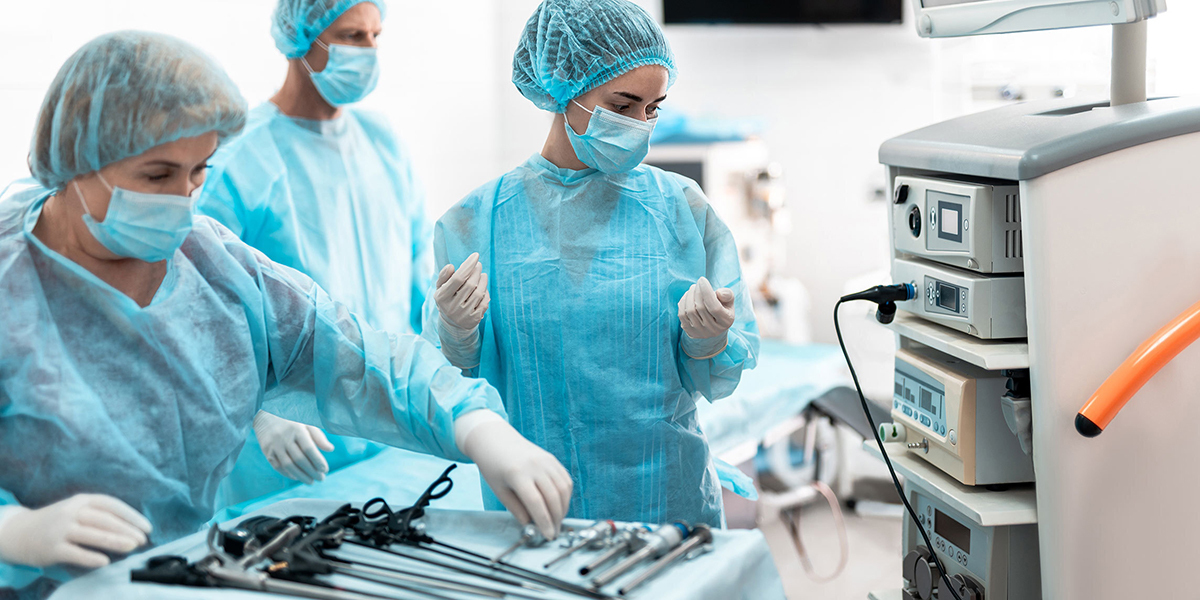About Uterine Fibroids
Uterine fibroids are muscular tumors that grow on your uterine wall. These tumors are very common and are not cancerous. Cancer in the muscle layer of the uterus is exceedingly rare and may present as a new uterine mass or tumor. Most uterine fibroids do not cause any symptoms but can increase your likelihood of experiencing complications during pregnancy and/or childbirth.
Types of Uterine Fibroids
Uterine fibroids are classified by their location.
Types of uterine fibroids include:
- Submucosal fibroids: Fibroids that impinge on the uterine cavity and are more associated with bleeding symptoms and infertility
- Intramural fibroids: Fibroids that form within the wall of the uterus
- Subserosal fibroids: Fibroids that form on the outside of the uterus
Symptoms of Uterine Fibroids
Symptoms of uterine fibroids reflect the location of the tumor; however, most patients do not experience any symptoms.
Symptoms of uterine fibroids may include:
- Feeling of fullness in the lower abdomen
- Heavy menstruation
- Lower back pain
- Painful intercourse
- Reproductive complications, including infertility
Risk Factors for Uterine Fibroids
Certain people are at greater risk for developing uterine fibroids.
Risk factors for uterine fibroids may include:
- Age: Fibroids are most common in patients between the ages of 30 and 50 and become less common after menopause.
- Family history: Individuals with a family history of uterine fibroids are more likely to develop them. African American patients are also more likely to develop uterine fibroids.
- Personal history: Obesity and a diet high in red meat are linked to a higher risk of fibroids, while eating green vegetables has been associated with lower rates of fibroids.
Treating Uterine Fibroids at UT Health Austin
If you experience severe symptoms as a result of uterine fibroids, multiple treatment options are available. Medical management can be helpful for bleeding symptoms related to fibroids. Surgical treatments for uterine fibroids include removal of the fibroids (myomectomy) and removal of the uterus (hysterectomy). Minimally invasive surgical techniques, such as laparoscopic surgery or robotic surgery, can reduce the pain and recovery time associated with your procedure. Your care team will work with you to determine the best course of treatment.
Care Team Approach
Patients are cared for by a dedicated multidisciplinary care team, meaning you will benefit from the expertise of multiple specialists across a variety of disciplines. Our team of board-certified obstetricians and gynecologists, fellowship-trained subspecialists, pelvic floor physical therapists, advanced practice providers, and more work together to provide unparalleled care for patients every step of the way. We also work closely with referring physicians and other partners in the community to schedule and coordinate any additional care services you may need.
We collaborate with our colleagues at the Dell Medical School and The University of Texas at Austin to utilize the latest research, diagnostic, and treatment techniques, allowing us to deliver comprehensive, compassionate care and provide a seamless experience for women from adolescence to menopause and beyond.
Learn More About Your Care Team

Minimally Invasive Gynecologic Surgery

Obstetrics & Gynecology
